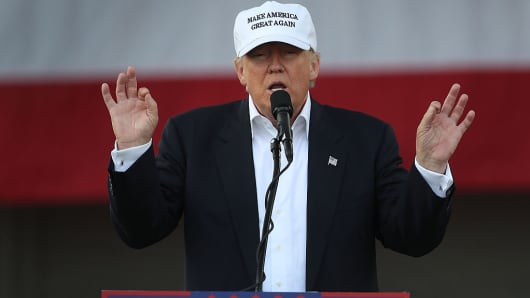What does Donald Trump's presidency mean for our financial system?
I've been asked this question a lot since election eve.
Here's my answer: I'm most worried about what Trump's promise to "dismantle" financial reform will mean for the economy and the most vulnerable among us.
When the financial crisis hit in the fall of 2008, it was not an act of God or a fluke of history; it was the result of choices made in Washington and in financial institutions and markets. And the consequences were borne most sharply by those least able to afford it. Millions of Americans lost their homes, their jobs, their savings.
In the wake of the crisis, President Obama built a new Consumer Financial Protection Bureau, created a Financial Stability Oversight Council to make sure that firms like Lehman Brothers and AIG were brought within the regulatory perimeter, raised capital standards to serve as a buffer in the event of losses, strengthened investor and consumer protections, and brought derivatives trading into the daylight. Now all of that is at risk.
Republicans have vowed to weaken the Consumer Financial Protection Bureau, and now they perhaps can—firing the person who had stood up to Wall Street, cutting its funding to block enforcement actions like the one against scams at Wells Fargo, permitting forced arbitration, taking away its authority over Wall Street auto lending, enabling "abusive" practices in the financial sector without any oversight or enforcement, and taking other actions to turn it into a feckless agency even more subject to attack by the very people undermining it.


